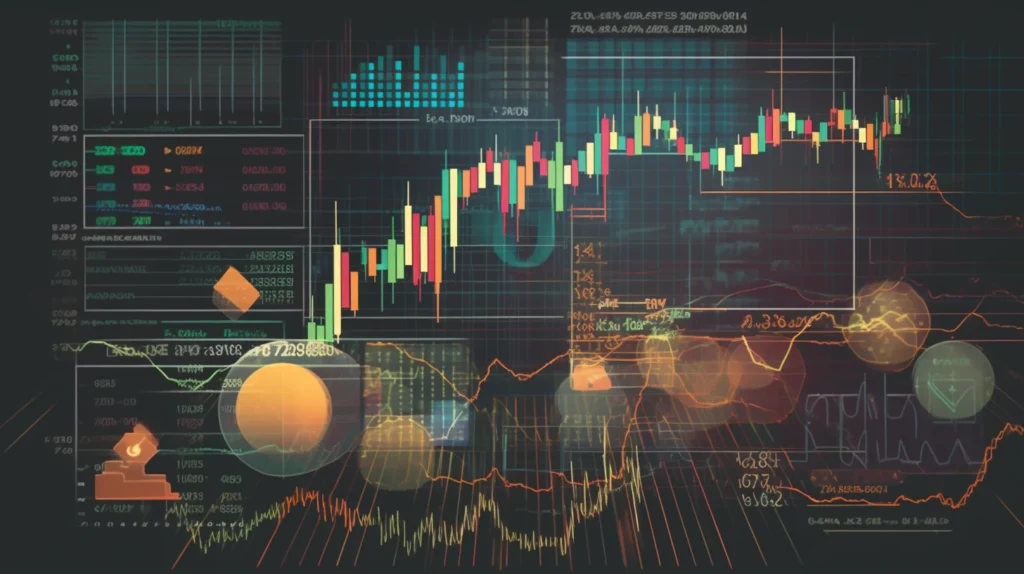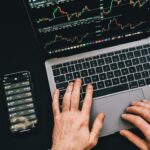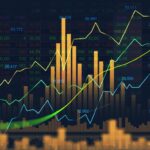The appropriate types of trading that needs to begin with once getting into that exhilarating world is termed the financial market. In a broad sense, there are mostly two types of trading which include manual and automated trading. These two types of trading vary much as adapted by different authors with different orientations and their strengths and drawbacks. So let us see them individually to make clear which of these suits well with your style.
What is Manual Trading?

Another term for manual trading is old-school or traditional trading. He or she, who trades needs to himself/herself decide at which time he has to enter or exit the markets. Each market is analyzed and, based on this analysis, one decides on trading opportunities. All the orders to buy or sell are placed manually. The whole process is controlled by the trader.
What is so special about manual trading? Everything depends on the human judgment. You rely much more on your personal skills and experience sometimes even on intuition when you trade these markets by knowing types of trading.
Key Features of Manual Trading:
Human Decision Making: Every trade depends on your analysis and choices.
Flexibility: In the condition of a change in market conditions, you can alter your strategy in real time.
Control: You are in control of your trades from entry to exit.
Benefits of Manual Trading:
1.It is very personal and flexible enough to adjust quickly.
2.Ideal for those traders who love the analysis of charts and patterns.
3.Excellent for the learning and knowledge of market behavior.
Drawbacks of Manual Trading:
- It is very time-consuming since it needs constant monitoring.Emotions sometimes make you commit mistakes.
- You cannot easily trade several markets at the same time.
What Is Automatic Trading?

This is known as algorithmic or algo trading where the computer program actually does the trading on your behalf. The programs automatically purchase and sell as per certain rules; there is no human intervention involved at any continuous step.
This gives it a great deal of speed and efficiency. All emotions of trading are eliminated with this. A system simply needs to be set up, and thereafter, the system takes care of everything.
Important Characteristics of Automatic Trading
Algorithmic-Driven: All trades are made following set rules and strategies.
Speed: The system reacts faster to any change that might happen in the market as any human will do.
Consistency: It is consistent with the plan that was set at hand.
Benefits of Automatic Trading
1.Saves time and makes it possible to have 24/7 trading without breaks.
2.Has no emotional bias to ensure that it makes logic in the choices.
3.Processes humongous data and trades simultaneously.
Disadvantages of Automatic Trading
1.Requires technical know-how in setting up and maintaining it.
2.Not so flexible when responding to changes that occurred in the market unexpectedly.
3.Extremely very reliant on technology, which can sometimes break down or go haywire.
Here’s a comparison that I have got for you brief so that you see what makes each different from the other:
- Parameter
- Manual Trading
- Automatic Trading
- Decision-Making
- Depends on individual analysis and judgment.
- Depending on algorithms and pre-set rules
- Speed
- Slow due to human reaction time would be more.
- Very fast and prompt
- Emotions
- Outcomes are affected by emotional decisions.
- Emotionless, purely a logical decision.
- Flexibility
- Highly adapting market conditions.
- Defined parameters
- Time Investment
- Monitoring and effort go on continuously.
- Minimal supervision is required after activation.

Which Trading Style Suits You?
Whether it is manual or automated trading, it depends on your requirements, objectives, or resources. Let’s break it to the basics:
Choose Manual Trading if:
You like analyzing markets and making decisions yourself.
You want full control over your activities.
You are a starter who wants to learn basic trading.
Choose Automatic Trading if:
You don’t have time and want to let technology do the work.
You would be okay installing the trading software or even having gurus do that for you.
You want to eliminate emotional impacts while trading.
Conclusion
As far as the travel to discovering which types of trading is best for you, this is one aspect to point out while walking on the kind available: manual and automatic. While trading manually is an in-your-hands affair with control, automated trading is fast and emotionless in decision-making. Thus, these types of trading are strengths and weaknesses to both, and what is best should be according to goals, experience, and even trading style.
You are going to strike somewhere the plausible balance that tastes you. And regardless of that road, or which one, one needs to encounter the very best trading demands patience self-control, and the relentless act of learning from trading. Good luck with your trading!
FAQs
1. What is the difference between manual trading and automatic trading?
Both types of trading are good in that regard, as this is who issues the commanding decisions. Manual trading relies on judgment from humans, whereas automated trading relies on algorithms that make the trades when rules are predefined.
2. Is manual trading feasible for beginners?
Yes, because manual trading is suitable for novice persons who are learning to trade since a person learns from the market and develops his or her trading skills by doing so before he or she hands over the decision-making processes to machines.
3. Could one change between the two types of trading?
Yes, most people actually begin with manual trading before going to automated trading when enough confidence in the skills has been attained.
4. What does one need for automated trading?
You will need a trading platform that supports automation, algorithms or bots, and possibly some programming knowledge or pre-made tools.
5. Is automated trading risk-free?
No, it is not completely risk-free. Although it eliminates the emotional bias and technical glitches, it may cause a loss due to badly designed algorithms or unpredictable market conditions.



